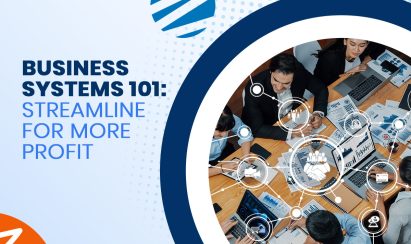Sometimes, it feels like your SEO specialist is speaking another language. You know work is being done on your Web site but when words like panda, penguin, hummingbird, possum, and pigeon are thrown out, it can be hard to keep up with the work being done.
SEO, search engine optimization, is the work that goes into making sure your Web site gets ranked on search engine results pages. Various factors impact the results, and if you’ve tried to stay on top of Google’s algorithm updates and rules, you know that search engines aren’t extremely forthcoming about the changes.
An SEO specialist, though, keeps these changes, along with each factor that determines search results, at the forefront of projects being done. If you’re looking to improve your search engine optimization, there are a few things you should know that will impact your content marketing, Web site design, and even hiring choices to manage your new SEO overhaul.
Good SEO Takes Years of Experience
Anyone can put up a Web site professing SEO proficiency. And yes, if you look at SEO as another method to increase your search engine results page rankings, it’s easy. The goal? Get to the top of the list. Rebuild your Web site, add some quality content, done.
Reality, though, is not as simple as an SEO imposter would have you believe. The number of factors that go into rankings is ever-widening, and an SEO specialist spends a great amount of time staying on top of SEO changes and updates, understanding Web design and coding, re-working a site’s framework to provide a solid structure, and monitoring external links.
Quality SEO is effective on a variety of levels, including the technical side, which accounts for your Web site’s structure and a clear map for bots to index; optimization on the page with relevant keywords or HTML tags, and optimization off-page, with quality links.
Someone who has worked extensively in the field knows common issues and has fixed enough Web sites to understand and solve common hang-ups with a quick glance. These individuals have a comprehensive knowledge of the Web site’s technical side and know how to marry that with the best optimization techniques to drive traffic to your site.
Good SEO Is More Than Just Technical Ability
Optimizing your Web site for search engines requires an in-depth level of marketing knowledge about everything from the company’s target audience and product to the development and design of the Web site. An SEO specialist is also a pro at content marketing.
Why? They understand that you can have all of the background pieces in place, but if your site isn’t meeting the needs of your customers, if Web visitors can’t find what they’re looking for, or if your content isn’t clear and compelling enough to inspire movement from your prospects, you’re not hitting any of the other benchmarks used by bots to index your site and move you up in the rankings.
The search engine’s job is to match a searcher’s inquiry with the most appropriate, fitting Web site. It does this by sending out Web crawlers, or bots, to copy or capture the site’s page and add the URL to its index (some weekly stats have the indexed Web at more than 4.5 billion pages). When someone searches, if the bots have been able to enter and store information from the site, the engine pulls the most appropriate answers.
Experts in SEO need technical ability to understand and assess the framework that the bots will utilize and report, but understand that content is a crucial piece of the equation, along with a variety of other factors in the algorithms used by search engines.
Content: More Than the Words You Type
Content, from the page or product descriptions to your blog posts and supplemental pieces, is more than just your words. Keywords are important, don’t get me wrong. Writing in clear sentences, with a central, focused topic is important, as is a call-to-action that moves readers to take the next step.
Also important, though, is the organization of the content. Look at the structure. Keyword stuffing is a practice that involves loading the meta tags and content body. It used to be a popular way to try and bump a Web site to the top of the search engine results page, but is now considered a form of spam, since it’s trying to bypass the natural filters to unfairly gain a higher ranking. As a form of spam, not only are you detracting from the content that could add value for your readers and grow your site, but you could also be facing penalties and punishment from the search engine.
Content needs to do two things:
- Reach people
- Reach search engines
Many people, though, switch those, thinking that the more they can get noticed by a search engine, the more people they will reach. They start researching algorithms, inadvertently stuffing their content with keywords, and hoping that will boost their rankings.
Google’s ranking algorithm, though, places a higher weight on factors like the authority or trustworthiness of the host domain, the popularity of the page’s link (how many times it’s been shared), and the text that sharers are using to link back to that page.
Keep that in mind. Write for people first, giving them the information they want and need. You’ll find other sites are more likely to share content they feel will help their readers. Center it around specific keywords — can you guess what mine are? If your copy adds value, you’ll naturally build up the areas that Google and other search engines value.
Share and Share Alike
Moz Blog wrote an interesting piece that breaks down the perfect mix of on-page SEO (content and factors within your control) and off-page SEO (link-building and other factors outside of your control). Hint: there is no perfect balance for all time. At some points, you’ll need to dive in and create new content. At others, you’ll focus on link-building, which is an ideal way to gain exposure and get noticed by Google.
It’s not the only way, but when you consider what Google values when ranking a page, it can certainly lend toward a higher-ranking page.
- Popularity: The more sites link to a specific site or page, the higher that page or site is viewed by the search engine. Sites won’t send their visitors to spammy pages or sites, so it shows that you’re a legitimate page with valuable content. Some algorithms are also placing a higher value on links that are shared within the same industry; a marketing blog shared by another marketing company is seen as having more relevant content than if a furniture company were to share the sameblog.
- Trust and authority: If more people are sharing your content, more people are seeing your site as a hub with information worth sharing. You can be trusted to deliver people-first content that will impact a reader’s life by teaching something, demonstrating something, or influencing a decision. As a result, your authority level goes up in the eyes of the search engine. You’re viewed as a credible expert, and your site reflects that impression
Link-building, though, can also turn into a form of spam if you’re not careful. Manipulating the search engine by controlling how and who shares the links is also a red flag for search engines. This exploitative behavior comes in many forms.
- Paid links
- Link exchange programs
- Link farms, link networks, and link schemes
- Paid link director inclusion
SEO Does Not Equal PPC
Search engine optimization and pay-per-click advertising both place your page on the search engine results page to get your noticed. While both require an understanding of the search engine’s algorithms, an SEO specialist will tell you that spending your money on PPC won’t impact your organic reach. In fact, major search engines have built-in processes and steps that prevent PPC investing from influencing organic search results.
Both methods have value:
- More people click on organic search engine results
- More people convert from PPC results
However, is most studies, organic search results have a higher impact than PPC results. Spending money on PPC can yield results, but if you’re on a tight budget, investing in organic SEO will give you a greater return
Penalties Can Be Fixed
Sometimes, bad things happen to good sites, including penalties. Any time Google updates an algorithm, especially in real-time, an SEO specialist will either rejoice or reassess the situation. Google has said they have two purposes when making ranking changes:
- To help searchers connect to sites that will meet their information needs and give them a good user experience
- To reward sites that are making user-focused and -friendly sites.
Keep an eye on the Google Search Console to see your site’s ranking; while they won’t necessarily tell you when or why you’ve been penalized, you’ll be able to see drops in traffic and can match the timeline up with the release of an algorithm update.
Seeing traffic drops is a good time to take a look at your site activity.
- Have you made any structural chances to your site recently?
- Have similar sites also seen a hit?
- Does your Web site have duplicate content?
Your next steps can vary, depending on whether or not you’re still indexed, ranking, and appearing in search results. In some cases, you might not be under a penalty, you may have just experienced an organic traffic decrease.
If you have been penalized, though, make sure you’re staying on top of the changes. Admit your mistakes to the search engine, get to know the engineers and Web masters, make the necessary changes, and request to be re-included. Be patient and professional, and follow the search engine’s rules — you need them, they don’t need you.
Be Patient
I can’t stress enough the importance of patience in SEO. When you’re launching a new site or you’ve just made some drastic changes to clear up penalties, you want to see results.
Who wouldn’t?
Unfortunately, when you log in, your analytics dashboard is showing no change a few days or even a few weeks after the changes. Just like in any other kind of marketing, SEO takes time. This time, though, instead of giving clients and customers immediate responses, we are the ones left anxiously waiting, wondering when the steps we’ve taken will be reflected in our results.
Just because it only takes you a few minutes to make a change doesn’t mean the search engine will be immediately ready to update those changes. Some small sites may find themselves waiting up to a month for the crawling bots to re-index new changes.
This waiting period is a great time to work on link-building and content compilation — also activities that take time to grow. Follow the rules and you’ll see long-term quality growth. Taking SEO shortcuts can cause site visitors to leave and search engines to dish penalties.
As you work to direct target audience members and customers to your specific pieces of content, remember — everything good is worth waiting for.
Like our free SEO analysis. If you’ve been waiting to address your search needs, this is the time to call Business Marketing Engine. An SEO specialist will look at your site, assess your needs, and help you set goals that will drive traffic to your site. Don’t wait too long, though — we’re only offering this for a limited time, so get ahold of us today.
We’ll be talking more about SEO over the next few weeks — it’s such an important part of what you’re doing to build your business. Let me know in the comments what questions you’d like to see answered about SEO.
Oops! We could not locate your form.










